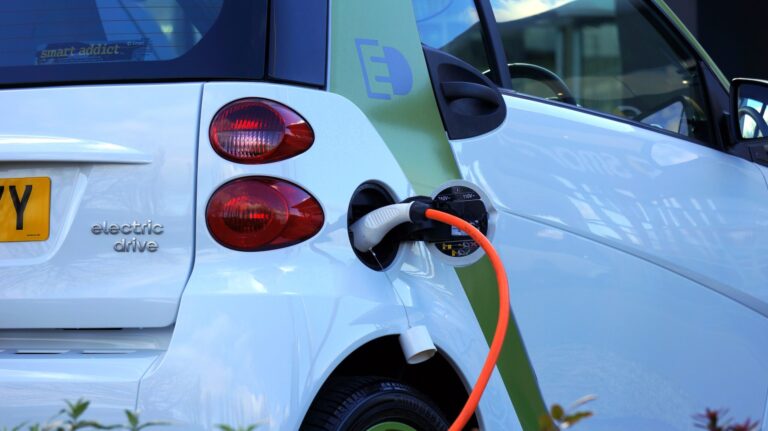Does your kid ride an electric school bus? Get ready for Fresher grades as well as cleaner air.

When it comes to electric vehicles, it’s very rare to get a double whammy from the benefits. After all, if you drive, say, a Tesla, pretty much all you are contributing to the fight against global warming is zero emissions coming from the car.
But when school buses go electric, there’s an added bonus — that young bodies and brains are not have to deal with fumes and the like that are pumped out by the yellow kid-haulers.
READ MORE ABOUT ELECTRIC VEHICLES: So Sorry, Planet Earth, But We Americans Are Really Not All That Interested In Electric Vehicles
READ MORE ABOUT ELECTRIC VEHICLES: Lack Of Infrastructure, Charging ‘Dead Zones’ Hinder EV Adoption
It’s hard to miss the mess caused by the vehicles, especially if you live near a school, where buses idle and roar as they wait for exiting students and set off to take them home. After all, almost all of the half million or so school buses operating in the U.S. are diesel powered — the most polluting of internal combustion engines — which contribute about 8 million metric tons per year of carbon emissions, according to the non-profit Environment America Research & Policy Center.
But now the federal government has come up with $900 million to help more than 500 school districts buy more than electric school buses, which adds to the $2 billion already spent on the initiative.
“This announcement is not just about clean school buses — it’s about the bigger picture,” EPA Administrator Michael Regan said in a Tuesday media briefing. “We are improving air quality for our children, reducing greenhouse gas pollution, and expanding our nation’s leadership in developing the clean vehicles of the future.”
In addition, the funding aims to dampen many school districts’ hesitation in buying electric buses, which can cost more than twice as much as their longstanding counterparts. However, the government hopes, like with other EVs, prices will begin to come down, thus making the vehicles more attractive to educational entities. In addition, electric buses are less expensive to maintain and operate.
In addition to the funding for the buses, the EPA has also been working with school districts and independent operators chartered by them to install charging stations at depots.
Will your kids’ grades go up? No doubt some academic somewhere will be watching.
Sponsor
Find a Vetted Financial Advisor
- Finding a fiduciary financial advisor doesn't have to be hard. SmartAsset's free tool matches you with up to 3 financial advisors that serve your area in 5 minutes.
- Each advisor has been vetted by SmartAsset and is held to a fiduciary standard to act in your best interests. Get on the path toward achieving your financial goals!
More from ClimateCrisis 247
- Tesla Roadster Could Save US Evs
- Solar-powered cars are Danger To EVs
- Free Coffee With Your EV Charger
- Gas Prices Fall, Environment Suffers






